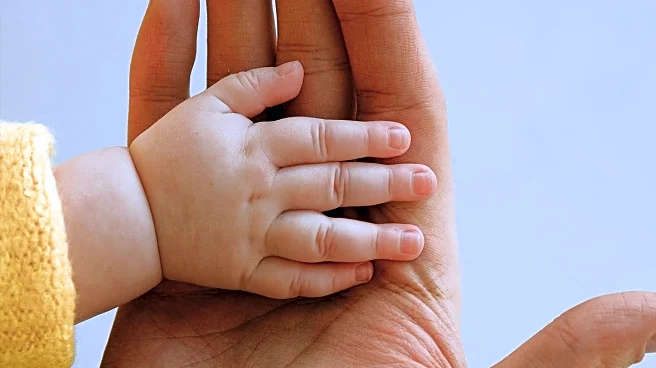What's Happening?
Karen and Jeff Groff, parents of 39-year-old Danny Groff, are grappling with the challenges of caring for their son who has Lennox-Gastaut syndrome, a severe form of epilepsy, and Type 1 diabetes. Danny requires constant care due to daily seizures and developmental disabilities. The Groffs, both retired educators, are concerned about who will care for Danny if they pass away before him. They are prearranging funerals for themselves and Danny, while considering options for his future care, including residential facilities or in-home nursing. Their daughter, Jessica Hartman, is prepared to take over Danny's guardianship, but the Groffs aim to minimize the burden on her by securing professional care.
Why It's Important?
This situation highlights the growing issue of caregiving in the U.S., where nearly 1 in 4 adults are caregivers. The Groffs' story underscores the emotional and financial challenges faced by families caring for loved ones with disabilities. The cost of care is significant, with households needing an additional $17,690 annually for an adult with a disability. The Groffs' experience reflects broader societal concerns about the sustainability of caregiving and the need for better support systems. Their efforts to plan for Danny's future care illustrate the complexities involved in ensuring long-term security for individuals with disabilities.
What's Next?
The Groffs are actively seeking a new in-home nurse to assist with Danny's care, a process complicated by a nursing shortage. They are also working to establish a care plan that includes professional caregivers to support their daughter in managing Danny's needs. The Groffs are involved in advocacy efforts, partnering with organizations to create resources like the 'C.A.R.E. Binder,' which helps families organize care and plan for the future. These steps are crucial in ensuring Danny's safety and happiness, and in providing a roadmap for other families facing similar challenges.
Beyond the Headlines
The Groffs' situation raises ethical and emotional questions about caregiving and the responsibilities placed on family members. It highlights the need for societal recognition of the burdens faced by caregivers and the importance of community support. The Groffs' advocacy work aims to provide guidance and resources to other families, fostering a sense of community and shared understanding among those caring for individuals with rare diseases.









